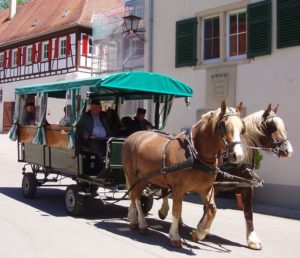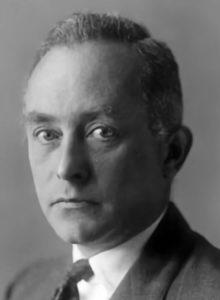Inventor of Buses
Simon Kremser (1775-1851) was born in the German city of Breslau (now Wroclaw, Poland). He followed in the footsteps of his father, a wealthy merchant. During the Napoleonic Wars, Kremser helped to provide funds for the Silesian Army against Napoleon, and managed the Prussian royal family’s war chest. He was awarded the Iron Cross, and was eventually granted citizenship, becoming one of the first Jews to be a German citizen. In 1825, Kremser had an idea for a public carriage line that would quickly and cheaply transport people across Berlin. He got permission from King Friedrich William III, and designed a large horse-drawn carriage that could seat up to 20 people. Such carriages are still known as “kremsers” in Germany today. By 1835, Kremser ran three different “bus” lines in Berlin. The idea of public buses soon spread across Europe. As the king’s official hauler, Kremser was also the one commissioned to return the famous Brandenburg Gate Quadriga to Berlin in 1814 after it had been snatched by Napoleon. Little else is known of Kremser, and no picture of him has survived. It is believed that he lived out his last years in Russia, where he served the royal family and was given the honorary military rank of major.
Words of the Week
The only wealth that I truly own is that which I have given away to good causes. Everything else – all my holdings – are simply under my control for the moment, but they can be lost in the next moment due to a bad decision, war, an accident or other cause which I cannot control. However, the good institutions that my money has built are forever; they can never be taken or lost.
– Sir Moses Montefiore


